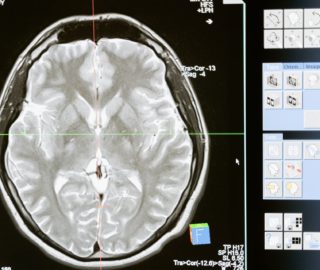Alcohol use disorder is a serious condition that affects around 6.2% of the U.S. adult population. Left untreated, alcoholism can cause numerous long-term, severe health issues, including cognitive deficits and cancer. Long-term, heavy drinking leeches and also prevents essential nutrients from entering the body. These discomforting and severe nutritional deficits are called wet brain. The following article will explore the dietary consequences of long-term alcohol abuse, and whether or not these deficits can be reversed.
Wet Brain


Wet Brain
Alcohol Use Disorder and Wet Brain Nutritional Deficiencies
What is wet brain and how does it happen?
At its core, wet brain is a form of brain damage from severe, long-term alcohol abuse. In scientific terms, wet brain is called Wernicke-Korsakoff syndrome, and the condition is directly related to a deficiency of B1 vitamins or thiamine.
Thiamine is vital to many important bodily processes and systems, but it does not occur naturally within the body like other essential nutrients such as iron. For someone to obtain the recommended daily amount of thiamine, they need to consume it either in food or drink. A reduction in essential B1 vitamins is a natural consequence of a poor diet. A poor diet is a common occurrence in those who abuse alcohol long term.
Although heavy, compulsive drinking prevents people from eating healthy food, alcohol also prevents the body from absorbing thiamine and leeches it from the body. The liver is where thiamine is stored. The liver naturally releases thiamine into the body in an active state. Alcohol interferes with this process. The thiamine stored in the liver is rendered inactive and unusable once a person begins to drink heavily and often.
Thiamine is incredibly important for many bodily systems and tissues to function properly. There are numerous enzymes in the brain that need thiamine to function, including many important neurotransmitters. When the brain is unable to get the correct amount of thiamine over a long period of time, it experiences damage. Vitamin B1 deficiencies are rare occurrences in the US, except in people who regularly abuse alcohol or who have a serious autoimmune disorder such as HIV or AIDS.
What are the symptoms of wet brain?
There are two distinct phases in the progression of wet brain or Wernicke-Korsakoff Syndrome. Each stage exhibits its own separate set of symptoms.
Wernicke’s Encephalopathy
Wernicke’s encephalopathy is a condition where neurological symptoms become present in the patient due to biochemical lesions of the nervous system. Usually, the thalamus and the hypothalamus are most affected. These parts of the brain are crucial for memory recall.
Korsakoff’s Psychosis
With this part of the condition, symptoms tend to appear after Wernicke’s encephalopathy occur and then disappear. Korsakoff’s psychosis happens because of permanent damage to parts of the brain that are responsible for memory recall.
The symptoms will vary on whether or not a person is in the stages of Wernicke’s encephalopathy or Korsakoff’s psychosis. During the encephalopathy stage, the following symptoms are present:
- Confusion
- Loss of brain activity that can lead to a coma or death
- Ataxia
- Problems with memory
Rarely, people will experience abnormal eye movements and issues with vision, such as drooping eyelids or double vision. Once wet brain reaches the second stage, Korsakoff’s psychosis, patients experience a marked decrease in the ability to form new memories. They may also suffer significant memory loss. Also, visual and auditory hallucinations are common. People with Korsakoff’s psychosis may even fabricate stories to fill in gaps in their memory. Up to 90% of people with Wernicke’s encephalopathy will go on to develop Korsakoff’s psychosis.
Who is most at risk of developing wet brain?
Brain damage from alcohol abuse occurs when a person drinks heavily and for many years. Genetics also play a role in the development of wet brain. Those with an alcohol use disorder and other health issues that make thiamine absorption difficult or impossible are at risk of wet brain. Poor diet, anorexia, weight-loss surgery, HIV, and cancer can all worsen wet brain symptoms and outcomes.
Is wet brain reversible?
In some instances, it may be possible to reverse the symptoms of wet brain. Heavy drinkers at-risk of wet brain can reverse some of the symptoms and halt the process of brain damage with thiamine supplements. People exhibiting signs of Wernicke’s encephalopathy with a history of heavy alcohol use can be given injectable thiamine to reverse some of the damage and ease symptoms. Abstaining from alcohol is another effective way to prevent symptoms from turning into Korsakoff’s psychosis.
For those who have Korsakoff syndrome, 25% can recover from wet brain with supplemental treatment. Half of all Korsakoff syndrome patients will not be able to improve even with treatment. With treatment, a full 25% will experience no relief in symptoms. Those who recover will be able to live a normal life if they abstain from alcohol.
Is wet brain a dangerous condition?
Left untreated, wet brain will continue to worsen and can be life-threatening. Vision difficulties and issues with balance can lead to dangerous falls and head injuries. Permanent memory loss and cognitive deficits can lead to permanent disability and shortened lifespan. Caught early, the condition can be slowed or stopped altogether. But, abstaining from alcohol is the key to recovering from wet brain.
If a person is exhibiting signs of wet brain, they will need to be treated for nutritional deficiencies in a hospital. IV injections of B vitamins and magnesium can help reverse the symptoms of wet brain. Patients may also need to stay in the hospital for a period of time, so medical professionals can adequately monitor their condition and prevent adverse health problems from alcohol withdrawal syndrome.
Heavy drinkers with wet brain nutritional deficiencies must obtain medical detox and inpatient rehabilitation. Abstaining from alcohol is the only way to reverse the course of wet brain, or at least stop it from getting worse in the severest of cases. Please speak with a licensed drug abuse counselor today if you or a loved are suffering from the effects of Wernicke-Korsakoff syndrome.




